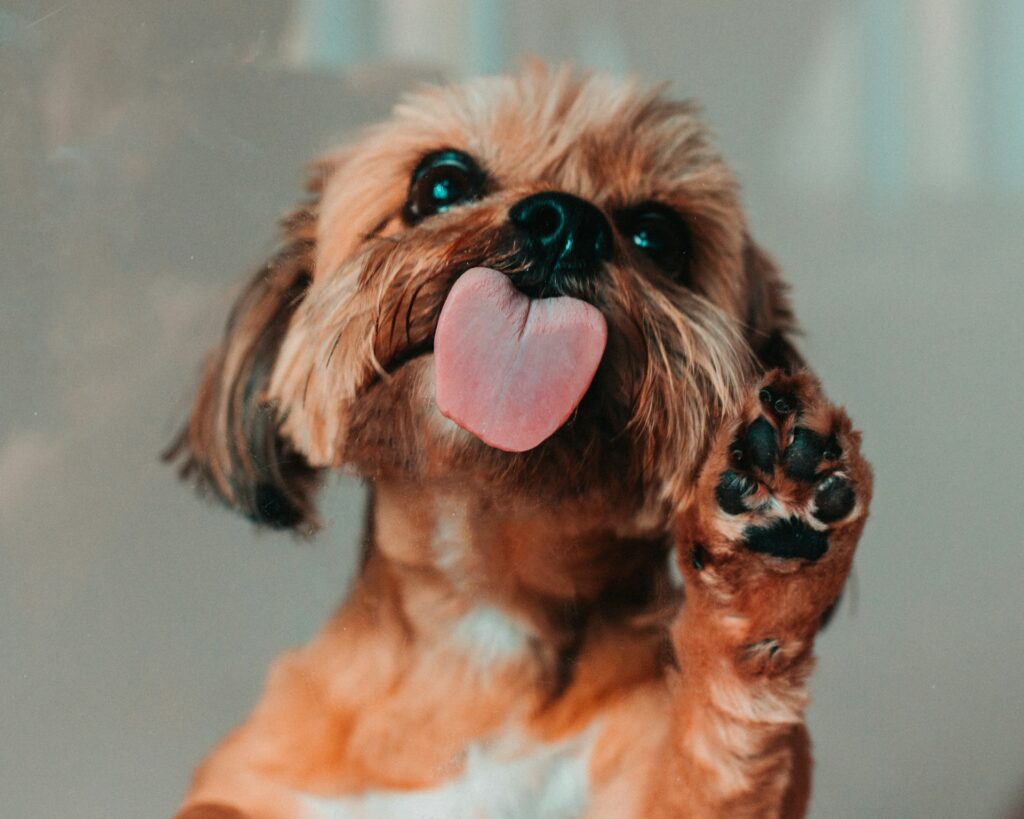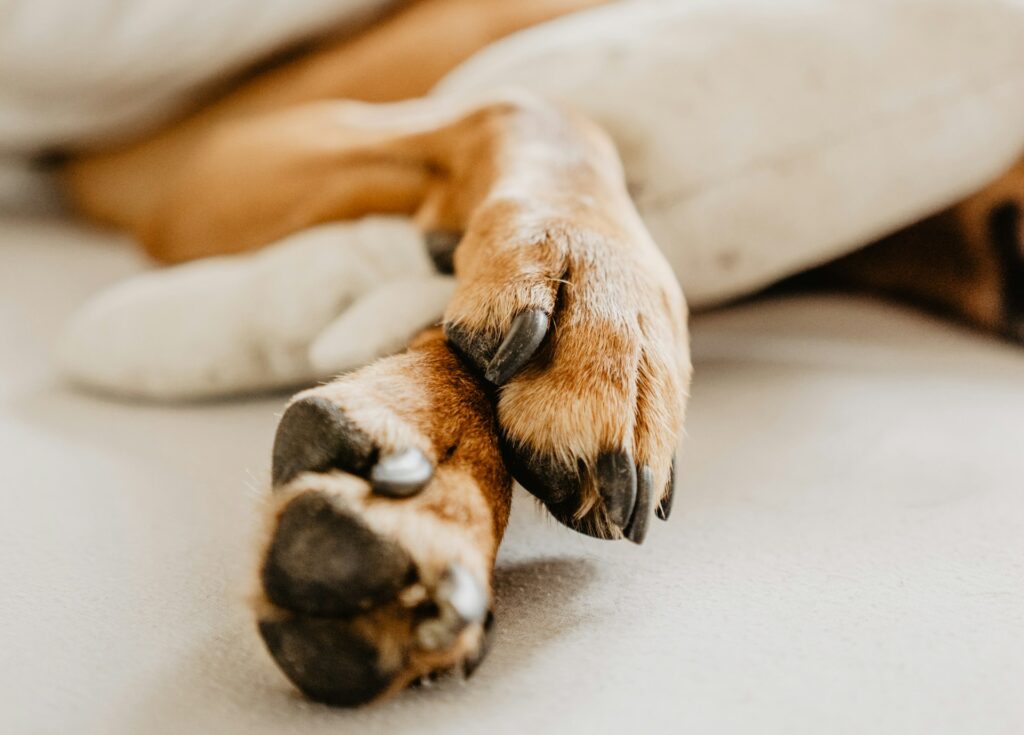Dogs will normally lick their paws during grooming themselves, but excessive paw licking can be a sign of underlying issues.
When does paw licking become excessive?
Paw licking is part of a dog’s self-grooming routine, but it becomes an issue when it interferes with their well-being. Here’s how to tell if your dog’s paw licking is going overboard:
- Duration and frequency: If your dog spends long periods of time or frequently returns to licking the same spot on their paw.
- Physical damage: Excessive licking can lead to inflammation, sores, or infections, indicated by redness, swelling, pain or discharge/scabbing.
- Behavioural changes: Watch for signs of distress or changes in behaviour, such as reluctance to walk or play or being more reluctant to have their paws touched.
Why do some dogs lick their paws so much?
Understanding why your dog licks their paws excessively is crucial in finding the right solution. Some reasons why a dog might be licking their paws (aside from normal grooming) include:
Allergies
Allergies are one of the most common causes for excessive paw licking in dogs and include environmental allergies (atopic dermatitis), food allergies and contact allergies.
Environmental and contact allergy triggers include external triggers such as plants, pollens, grasses, and chemicals. Food allergies generally develop in young dogs and are most commonly triggered by a protein source such as beef, chicken, or lamb.
Dogs with allergies often get inflamed, itchy paws, which makes them want to lick because of discomfort of the skin here.
Injuries or parasites
Trauma to the skin, including injuries like cuts, grazes, burns, foreign material like splinters, insects (e.g. ant bites or bee stings) or parasites like mites or ticks, can all cause excessive paw licking due to pain and irritation.
Psychological factors
Dogs experiencing anxiety, stress, or boredom may turn to excessive licking as a coping mechanism, though this is a less common cause.
Dermatological Issues
Fungal or bacterial infections, as well as dry skin, can make your dog’s paws itchy and uncomfortable.
When to see a vet about your dog’s paw licking
Seek professional advice if:
- Home care isn’t enough: If your interventions don’t reduce the licking, a vet can help identify the root cause and recommend appropriate treatment.
- You notice signs of infection: Foul odor, pus, pain, swelling or changes in paw coloration are urgent signs that require veterinary attention.
- You have behavioural concerns: If you suspect your dog is anxious or stressed, a vet or animal behaviorist can offer strategies to improve your dog’s mental health.
How to help a dog with sore paws from licking
If your dog’s paws are raw from licking, follow these steps to help them heal:
Clean and disinfect their paws
Clean their paws with a pet-safe antiseptic, such as warm, salty water or diluted Betadine solution. There are also some medicated shampoos that your vet may recommend you use to help prevent infection.
Protect the area
Apply pet-safe paw balms, creams or conditioner to soothe the skin and use protective gear (like an E-collar) to prevent further licking.
Monitor their healing
Keep an eye on the healing process and adjust treatments as needed. Persistent or worsening issues should be seen by a vet.

How to prevent excessive paw licking
If your dog is known for excessive paw licking, follow these tips to stop it before it starts:
- Clean their paws regularly. After walks, rinse your dog’s paws to remove any potential irritants.
- Use skin support products. Some dogs benefit from a topical, soothing/skin support product, such as paw balms or an oatmeal conditioner, applied as a lotion, regularly.
- Provide plenty of mental and physical stimulation. Use toys, puzzles, and training sessions regularly to keep your dog mentally engaged, as well as walks, play or training to provide adequate physical stimulation.
- Make sure their nutritional needs are met. A balanced diet can improve skin health and reduce allergic reactions. If your dog has sensitive skin additional supplements, such as Omega 6 supplements and probiotics, can be very beneficial.
- Don’t skip routine vet visits. Regular wellness check-ups can catch potential issues early on. Other stress and anxiety reduction techniques and products can also be discussed with your vet.



